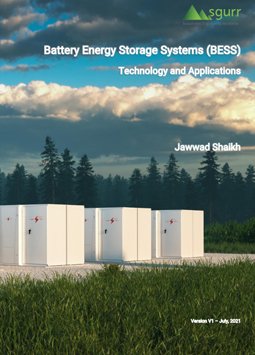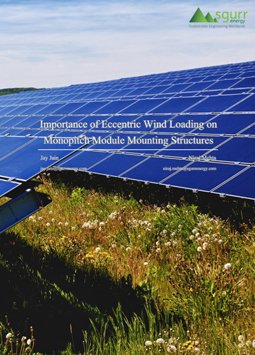
Meeting today’s tremendous energy demands requires hybridisation of coventional power plants and adopting a multi-vector approach. SgurrEnergy has a very unqiue and diverse skill-set of domain-specific experts that understand and deliver upto project expectations.
Hybrid solutions came into being, particularly to address the intermittent nature of the Renewable Energy Sources (RES)
But the inclusion of Battery Energy Storage System BESS into the landscape has proven to be a game-changer. The present day market has witnessed plummeting prices for solar PV technologies as well as battery storage technologies making it more feasible for deployment. Furthermore, the co-location of BESS with a Solar PV plant has added advantages over the other hybrid configurations, as it mainly sees a decrease in Levelized Cost of Energy by a great measure.
The most distinguishing quality of electricity is that it is generated for any given moment its consumed, therefore it is extremely crucial for generation to equal to demand at any instance, any imbalance on either side causes serious problems to the grid. With increasing penetration of renewables in the energy mix, there is usually over generation during lower demand and lower generation during high demand (instantaneous mismatch), this causes excessive strain on the grid leading to instability, demanding more efficient solutions. With continuous technological developments in Energy Storage Systems (ESS), BESS has certainly witnessed a sharp rise in a short span of time and has truly benefitted from plummeting technology costs and policy changes, BESS has now become the most prolific of all ESS as it offers unparalleled advantages over the other alternatives.
As all but one, renewable energy sources are dependent on the forces of nature, storing the excess energy being generated instead of curtailing is a judicious approach to solving the grid and RES problems. BESS integration has become mainstream with renewable hybrids and is the most preferred choice for energy storage.
With an unprecedented technological advent and adoption of digital transformation technologies such as Artificial Intelligence and Industrial Internet of things in the industry, there is more certainty in predicting power generation and consumption, a BESS leverages this in arbitrage which has further led to development of newer financial models for the day-ahead-markets.
To leverage the inclusion of a BESS for cost benefit requires a meticulous assessment of the whole project, as each project is unique in various aspects, to identify the core problems and provide solutions for it. SgurrEnergy has a team of storage specialists that can help identify the problems for each project and offer bespoke solutions that helps improve project economics. SgurrEnergy’s experience in the domain and engagement with a global clientele positions it at a vantage point of being an effective solution provider.
Our
Proficiency –
Your Benefits

Micro-grids
SgurrEnergy’s specialist engineering capabilities and a comprehensive understanding of such scenarios has enabled it to provide the most prudent and pragmatic solutions.
A virtuous solution is, sustainable, flexible, resilient, prompt-in-response, low in capital expenditure and operation & maintenance costs, with renewables coming to the centre stage as the most cost-effective power producer, integrating into Micro-grids to replace old and ageing assets is not just viable but also ecologically responsible and strongly encouraged.
An intriguing interest that has occupied the minds of energy consumers and utilities is to make the T&D infrastructure more resilient by installation of Micro-grids. For sources of energy that are dependent on nature, Micro-grid is an intuitive solution as it accommodates intermittent sources of energy with ease and provides the much-needed energy security.
The growth and development of Micro-grids has offered a great relief in electrification of lands isolated from the central grid. However, most of these Micro-grids are powered using diesel generators and other fossil fuels, that are not only expensive but leave a heavy ecological print on the environment causing an irrevocable damage to the climate.
Penetrating renewables with fossil fuels in the energy mix; more specifically Solar PV coupled with BESS has become the most ideal and preferred hybrid configuration for remote and isolated lands wherein the geography limits the installation of extended T&D infrastructure to these places.
As a use-case, for a telecom company that installs towers in a remote village without access to electricity, a Micro-grid is the most optimum solution, using a solar PV and BESS improves the project economics wherein the extra energy generated during the day can be stored in the batteries and be provided to the occupants of the village during the night. Micro-grid solutions have proven as an effective use case for islanded systems and rural electrification and have thus been widely adopted for such applications.
Micro-grids enable flexibility to the system; but a BESS when integrated with a variable generation source, such as solar PV or wind offers a great degree of agility. A BESS solution for these isolated lands provides stability and decreases dependability on the central grid. A BESS, helps in energy preservation which eventually aids in shifting energy, enhances power quality and providing a constant power output, furthermore, the BESS not only provides energy to the consumers during times of natural calamities, but also lowers the LCoE during peak demand hours.
Besides the challenges of the regulatory framework, installation of Micro-grids also brings along its technological challenges, using a BESS in a decentralized mode entails assessment of specific parameters, as the micro-grid enters the island mode it undergoes a sudden power surge requirement; before it stabilizes, which can often trip the power generators. Also, these isolated and remote lands often have varied geographies and are usually prone to climatic problems that bring along unique challenges of varying resource profiles affecting power generation usually causing an instantaneous mismatch leading to other grid problems. BESS technology has proven to be the most effective of the contemporary energy storage solutions.
Our
Proficiency –
Your Benefits
Our Services
Feasibility
Studies
Energy Yield
Assessments
Technology
Evaluation
Performance
Analysis
EPC Bid
Management
Detailed Engineering /
Owner’s Engineering
Technical Asset
Management
Technical Articles

Battery Energy Storage Systems (BESS) Technology and Applications

Importance of Eccentric Wind Loading on Monopitch Module Mounting Structures






























